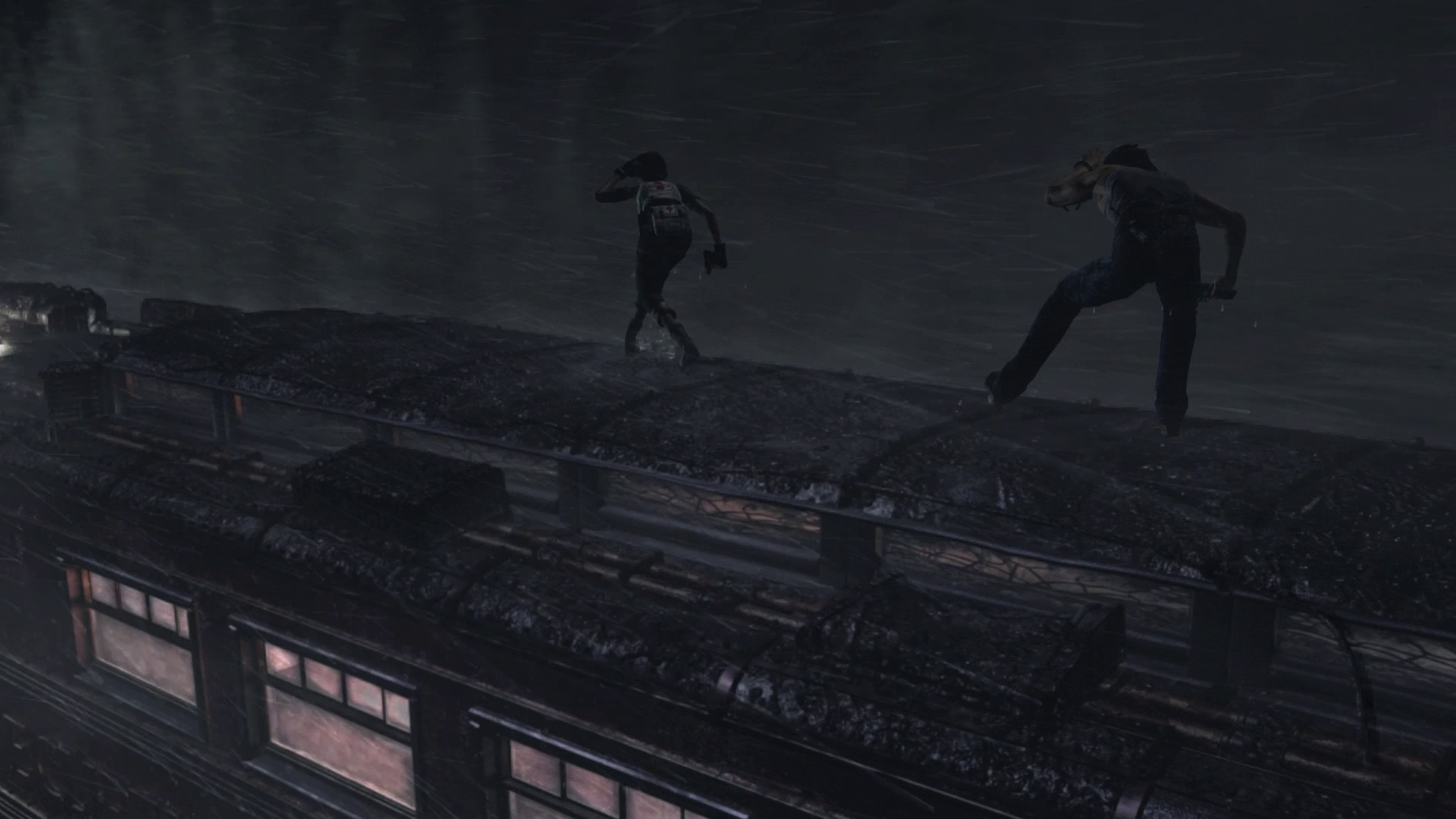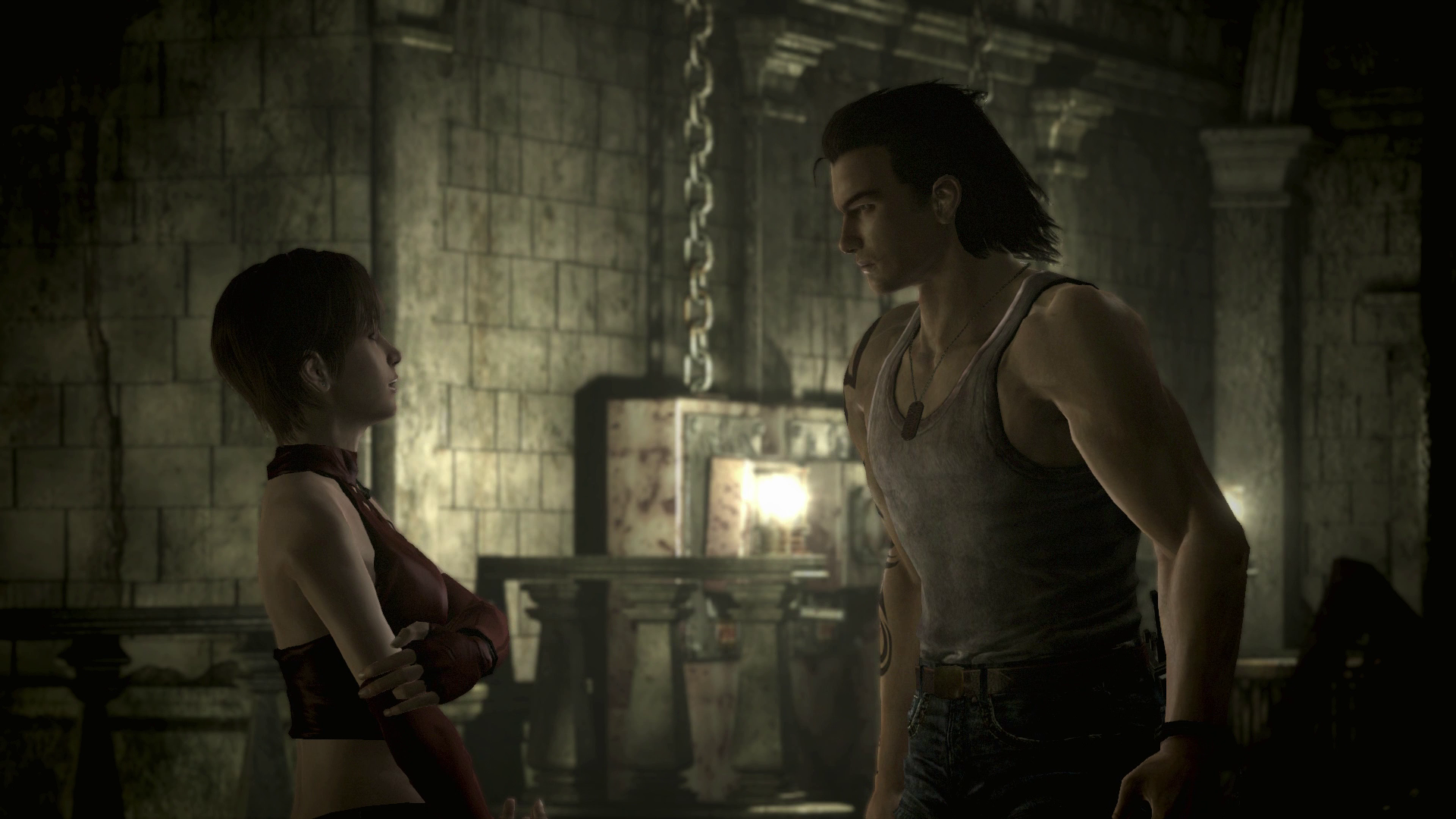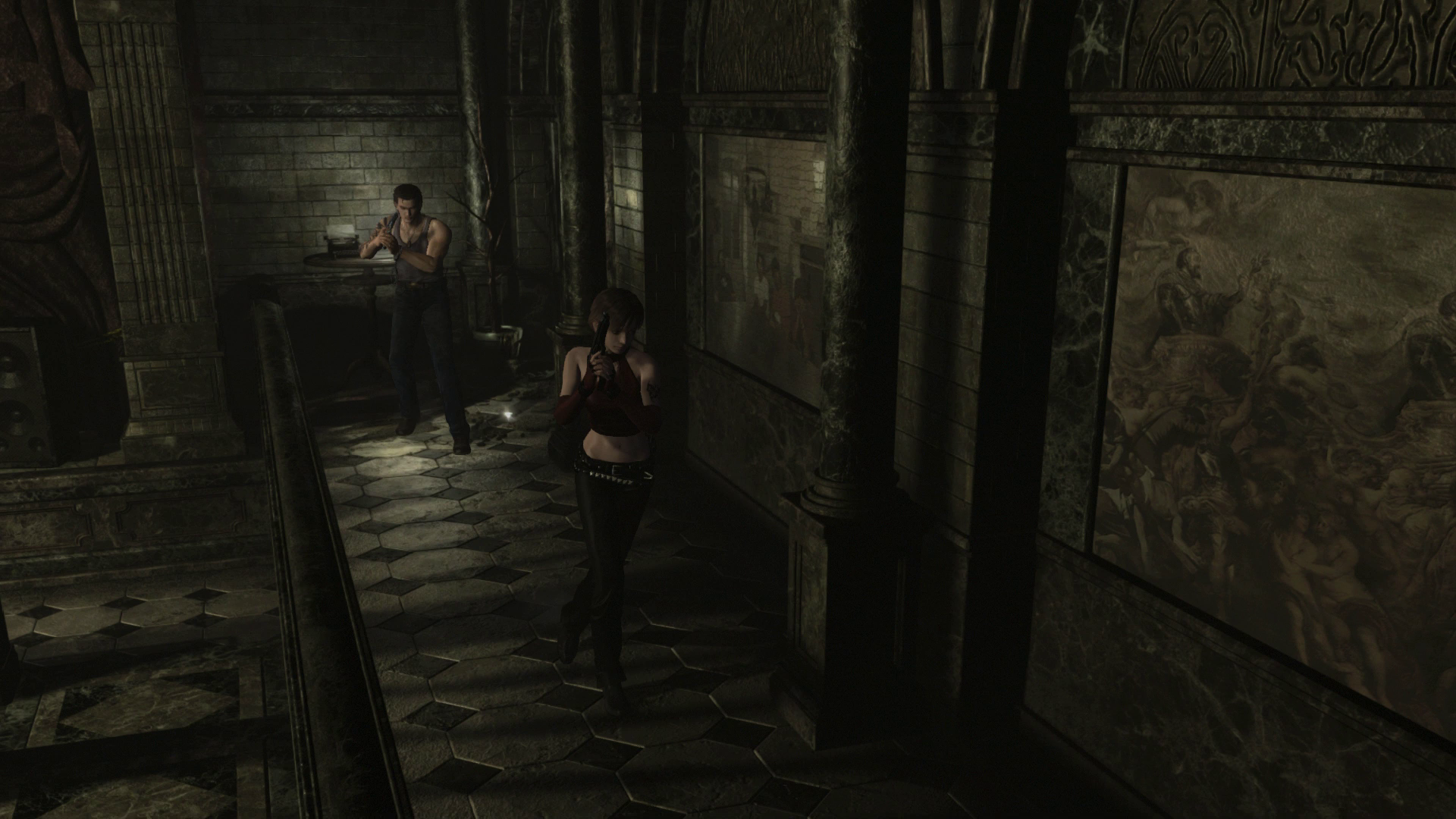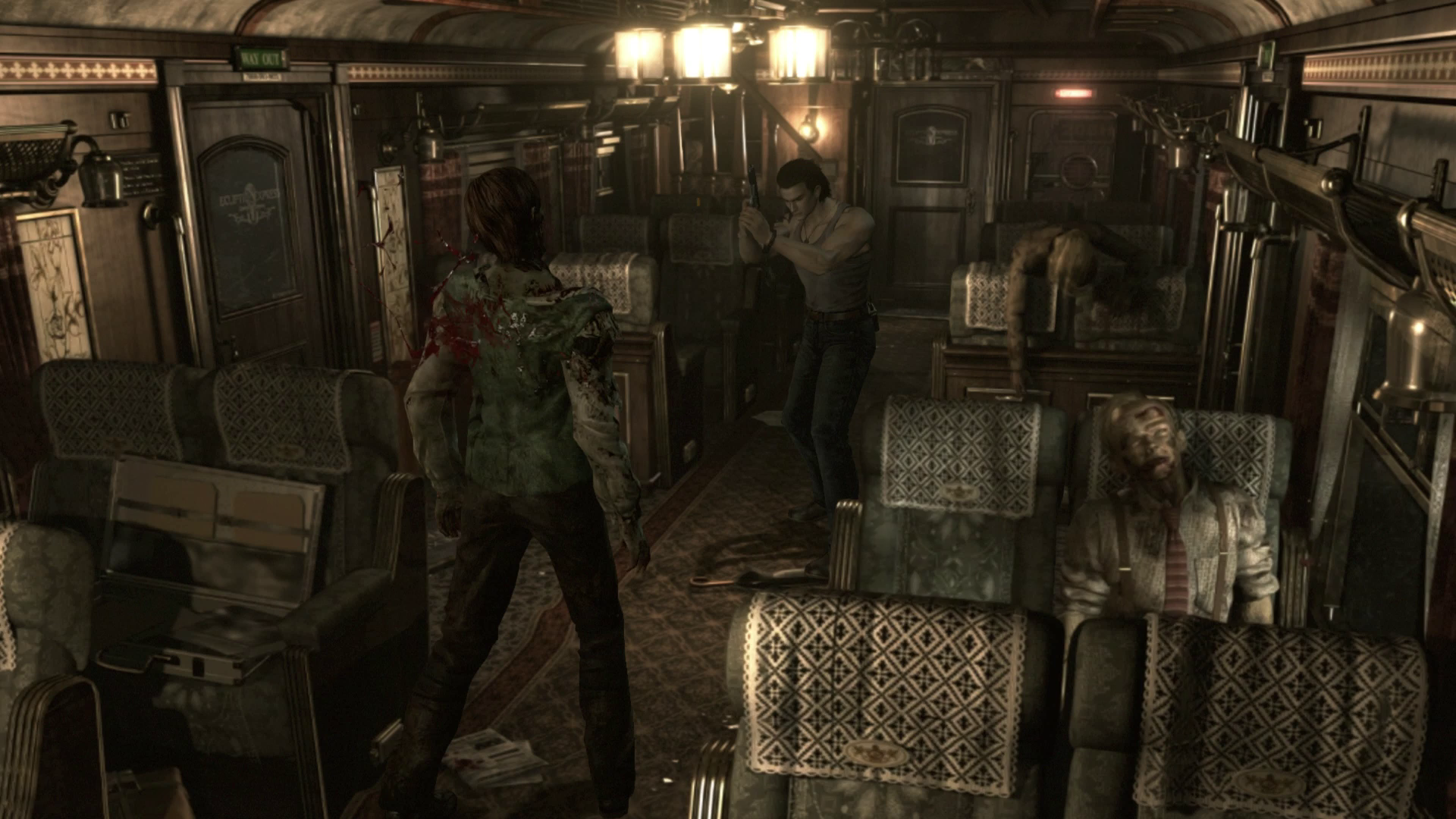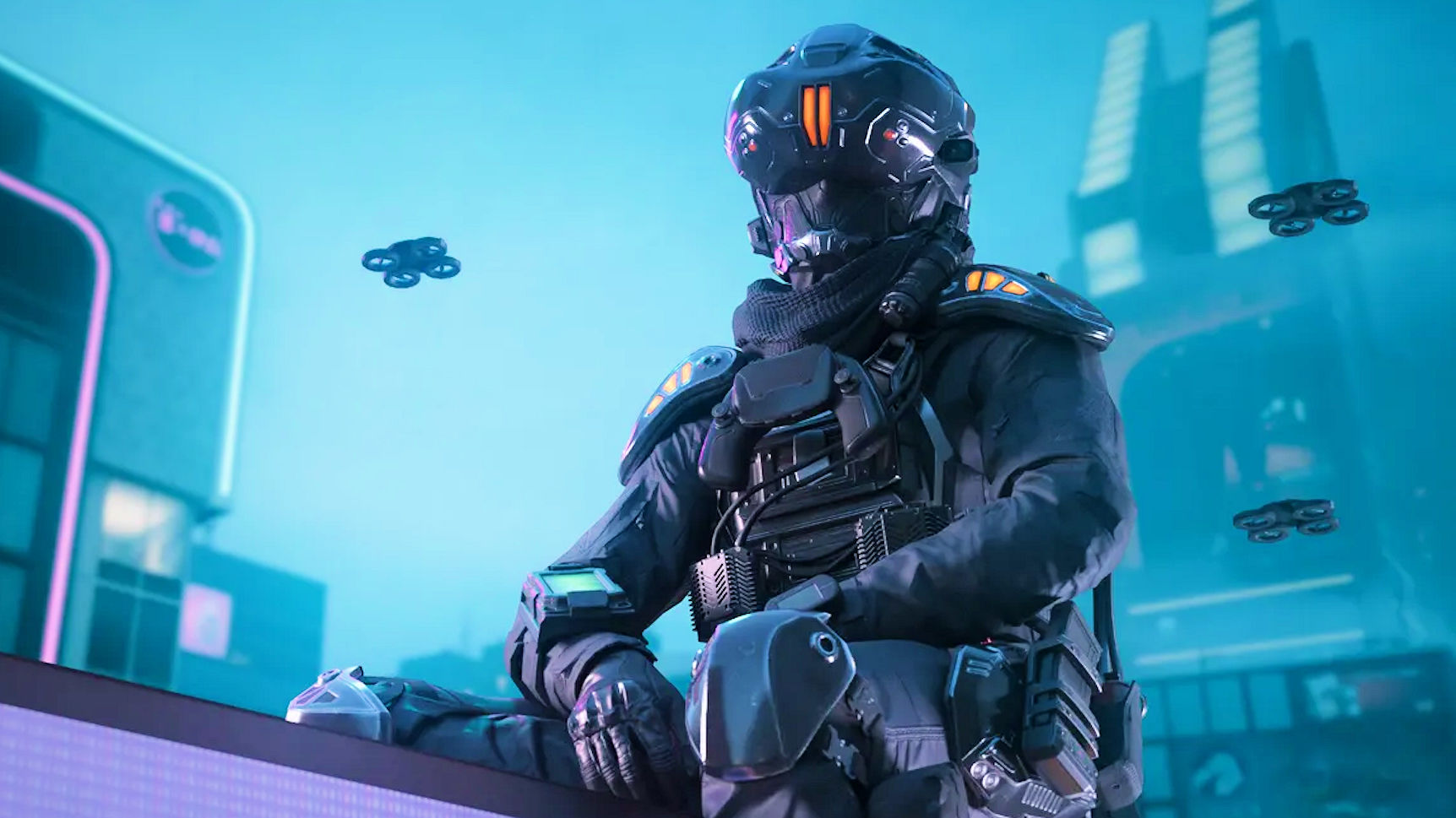Resident Evil Zero launched for the Nintendo GameCube over 12 years ago, which not only makes me feel old but also makes me wonder whether such an antiquated game has a place on the current gen systems.
As its name suggests, Resident Evil Zero was a prequel to Resident Evil, which also enjoyed a remake for the GameCube — and was subsequently re-released in HD for the Xbox One last year. At the time, Capcom said it had been their fastest selling digital title to date, and it's not hard to see why. The more recent Resident Evil games simply aren't very good.
Despite that, Resident Evil remains one of Capcom's most valuable franchises. Beyond the main series of games, it also has a cheesy line of action-horror movies, all sorts of licensed books, merch, and more game spin-offs than should ever be necessary.
I never finished Resident Evil Zero as a kid; my dog's insatiable desire to chew on the GameCube's proprietary cables saw to that. So, I was heading into Resident Evil Zero with a nostalgic urge to finish what I began. Sadly, in 2016, I think nostalgia is potentially the best thing that Resident Evil Zero has to offer.
Disclosure: This review was conducted on Xbox One using a copy provided by Capcom.
Zero Sum
Resident Evil Zero Setting, Visuals and Audio
As mentioned, Resident Evil Zero is a prequel, overlapping with the original game. You can control either Rebecca Chambers, a rookie S.T.A.R.S. operative separated from her team in the mutant infested mountains from the original, or Billy Coen, a disgraced military lieutenant who recently escaped a trip to death row.
All the latest news, reviews, and guides for Windows and Xbox diehards.
Resident Evil Zero won't win any Oscars. The franchise follows a standard formula: biotech company attempts to play God, creating biological weapons for profit, viruses leak through various mishaps or sabotages, and then bad things happen.
If you're a fan who hasn't played Zero before, you'll appreciate the additional insights for events leading into Resident Evil and Resident Evil 2, particularly when it comes to the relationship between signature antagonists William Birkin and Albert Wesker. Though, for the most part, the plot is a forgettable affair. It serves mainly as an excuse for the game's various undead mutants and haunted locations, and it works pretty well in that role.
Like Resident Evil HD before it, Zero's backdrops are at least hauntingly beautiful in their own artistic right.
When it comes to visuals, Capcom hasn't done a massive amount of spring cleaning and part of that lies in the game's format. Like every Resident Evil pre-Code Veronica, the game relies on static pre-rendered backdrops that merely imitate a 3D environment. In previous generations, this allowed Capcom to create the illusion of something more detailed, but they also helped the game radiate a claustrophobic atmosphere with fixed camera angles. In 2016, such techniques have become unnecessary, and when Zero does feature a truly 3D object, they sit jarringly on top of the game's static art like low-poly invaders.
That said, like Resident Evil HD before it, Zero's backdrops are at least hauntingly beautiful in their own artistic right. When you consider its age, Resident Evil Zero's locations are well-detailed, basking in that classic atmosphere that the most recent iterations have largely forgotten. The musical treatment is suitably eerie too, surrendering a mixture of moody orchestral tones, foreboding natural ambiance and occasional dead silence — which often indicates an imminent, looming threat. Quiet is rarely good.
Resident Evil Zero pulls off some interesting tricks to bring the static backgrounds to life. Light sources throw dynamic shadows from the game's horrific creatures, and surfaces like windows and puddles cast ghostly reflections. Despite the addition of widescreen and a bumped resolution, Resident Evil Zero will still require a little adjusting of expectations on your part.
These issues repeatedly hint at the game's age, kicking you out of the immersion.
Certain 3D models seem to have enjoyed a little polish, while others appear blurry and pixelated, as though they stepped out of the time machine too soon. This problem is especially evident in Resident Evil Zero's pre-rendered cut-scenes, which present like YouTube videos streaming on dial-up. The visuals aren't the only thing that requires you to adjust Resident Evil Zero's awkward animations are like the product of passionate amateurs rather than a big budget powerhouse. These issues repeatedly hint at the game's age, kicking you out of the immersion.
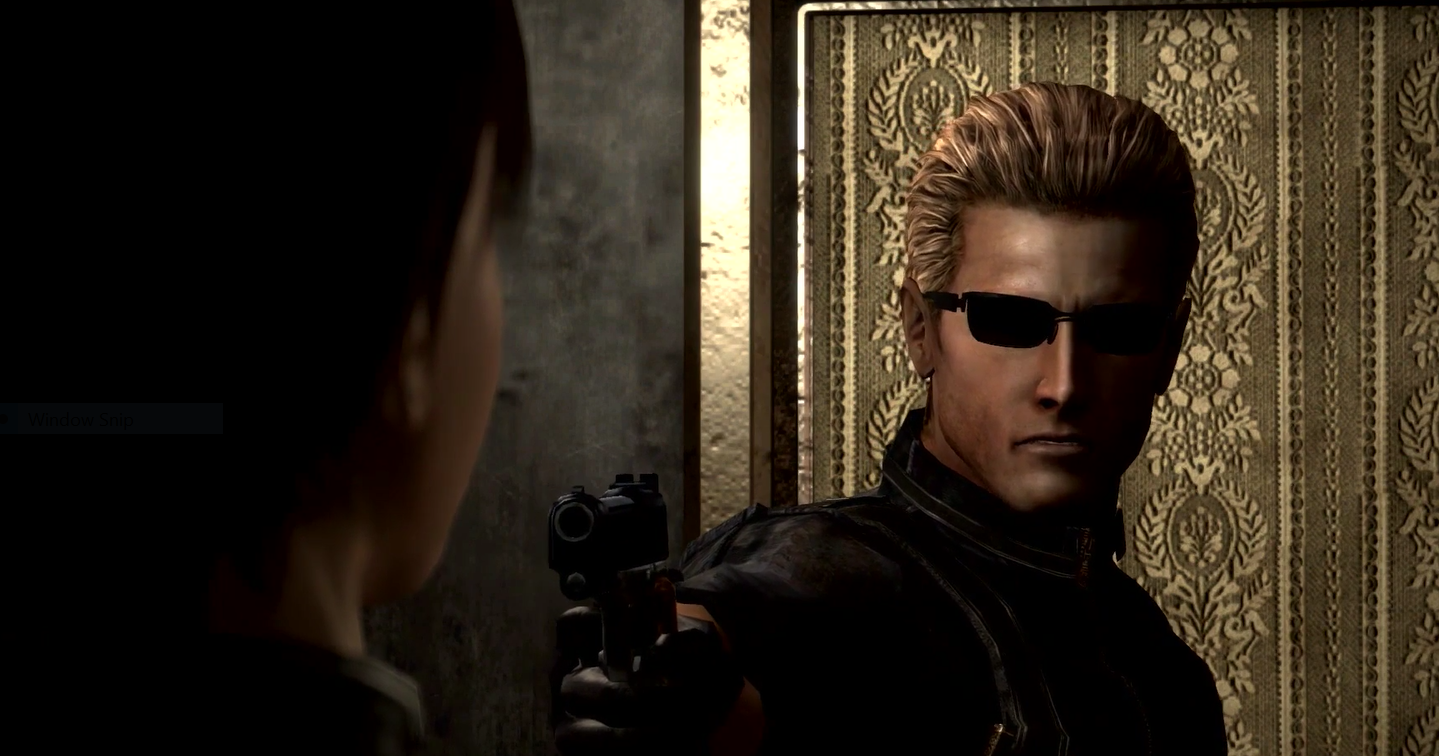
While Capcom could've done a little more to improve the graphics, some other aspects would've required far more investment. You can't upscale awkward, B-movie voice work, and you can't re-texture cliché plot devices. Still, if you're picking up Resident Evil Zero, you'll likely forgive the quirks, given that it's an older game - a fact that's also reflected in its appropriate pricing.
All things considered, Resident Evil Zero's design is on-point. It's easy to see what the same artists could've produced with today's technology and standards. Zero's presentation isn't what hinders the game; its gameplay sees to that.
Nul Points
Resident Evil Zero Gameplay
Resident Evil Zero marked the beginning of Capcom's experimentation with the series' core mechanics, and just like the game's grotesque experimental horrors, features introduced in Zero probably should've been left in a test tube.
In Resident Evil 1 and 2, you were given the opportunity to play as one of two protagonists. Each had different strengths and weaknesses and were able to navigate the game's labyrinthine locations using different methods - discovering unique story aspects in the process.
Resident Evil Zero reimagined this, allowing you to play as both protagonists at the same time. Zero introduces a modernized control scheme to improve this gameplay, allowing you to move your characters 360 degrees on both joysticks. The classic control schemes feature separate controls for turning on the spot, and moving forwards and backward. The new scheme provides a slither of modernization, but it's far from ideal - every time you enter a new camera scene you have to re-adjust your heading.
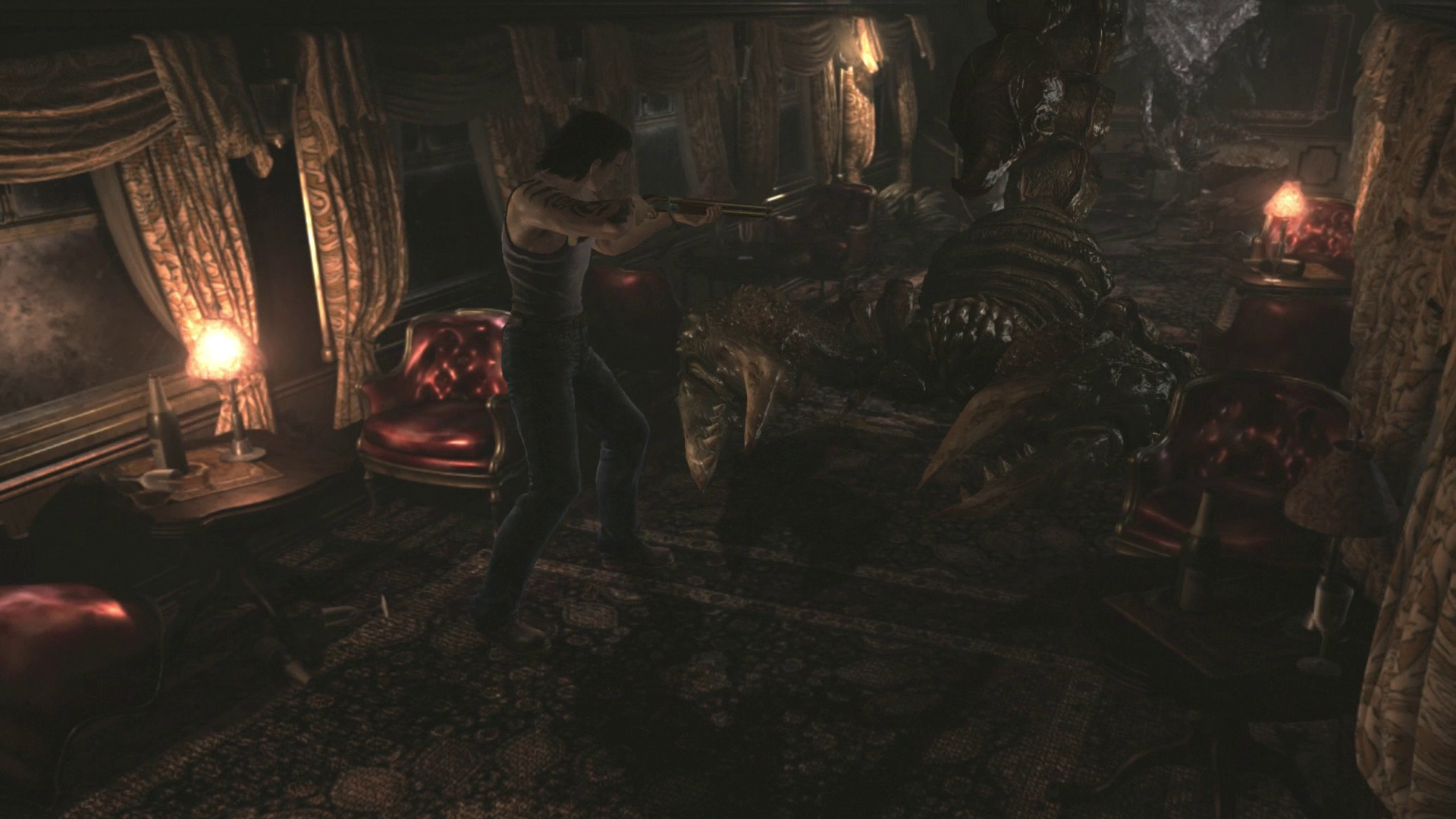
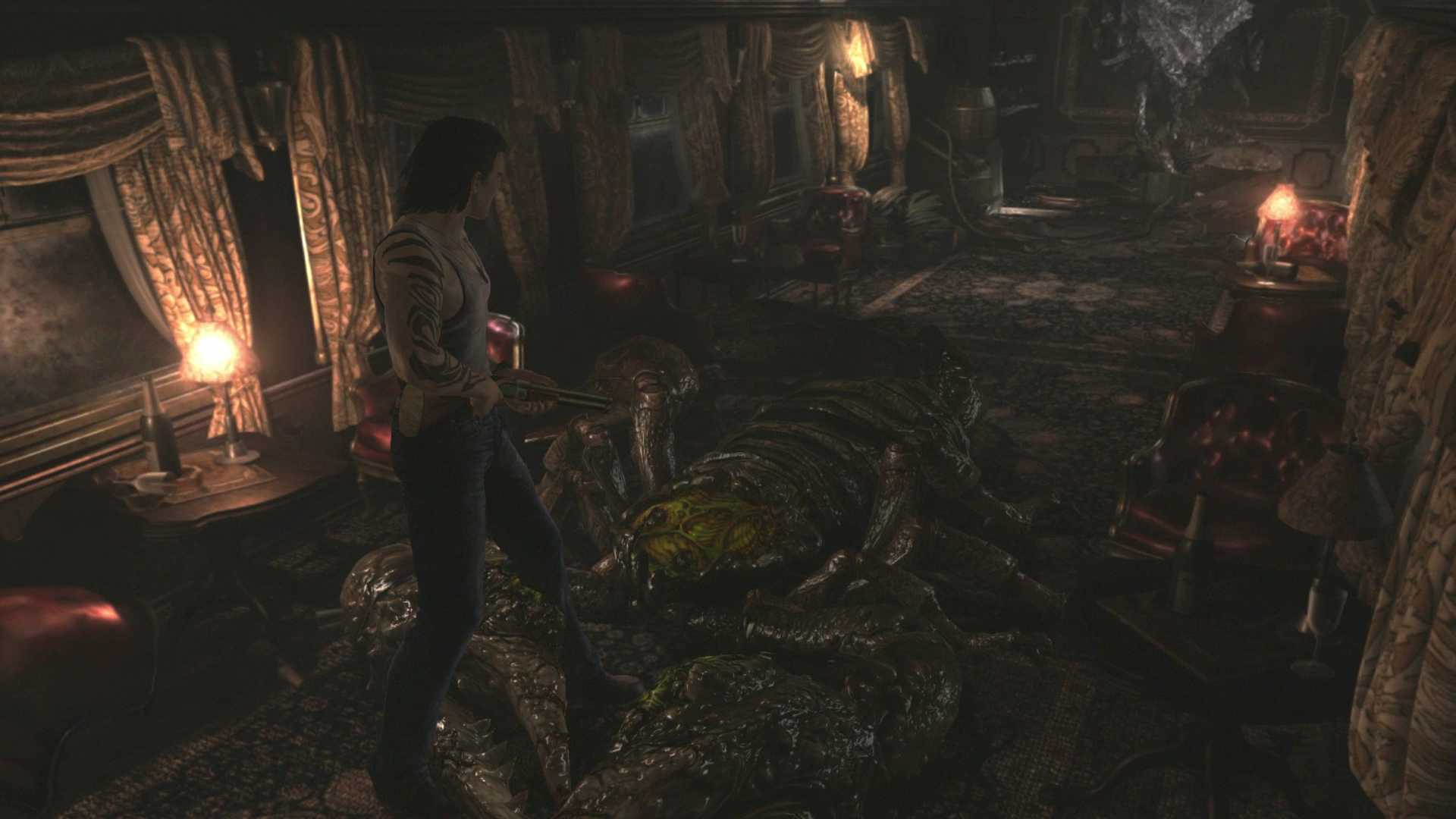
You can customize the behavior of your A.I. partner, setting them to follow passively or aggressively attack anything that twitches. The classic Resident Evil games often had sequences where you'd get followed by a second character - extending that to the entire campaign probably seemed like a natural progression. Indeed, Resident Evil Revelations 2 and Resident Evils 5 and 6 ended up sporting the dual-protagonist gameplay as well, for better or worse.
Unlike the previously-mentioned games, you're able to send Resident Evil Zero's protagonists to explore entirely different areas independently, switching between them at will. It seems like a good idea on paper, but in practice, it's a little clunky.
Inventory management has long factored into Resident Evil's core fear factor. Managing diminishing supplies of ammo and healing items fed the game's tension, repeatedly forcing you to decide between fight or flight. To progress through the story, those early games forced you on complex item hunts, through decrepit mazes, solving puzzles, finding keys, maps, and other items — all while evading various mutated horrors with depleting resources.
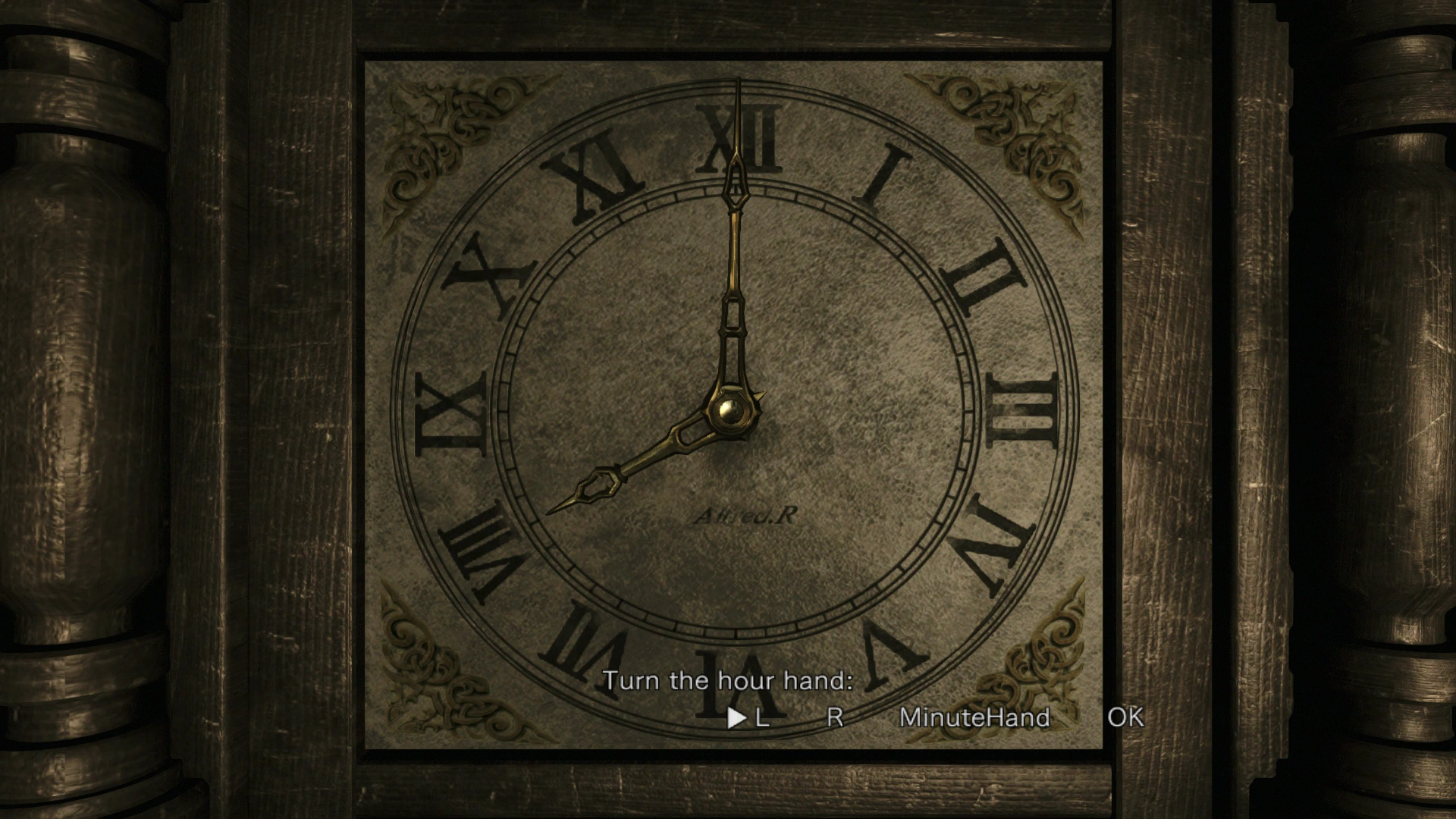
Resident Evil Zero continues that tradition, but it goes completely overboard with it, wreaking havoc on the game's pacing. Both Rebecca and Billy have tiny inventories, and to account for that, Resident Evil Zero allows you to drop items on the floor should you need to free up space for an essential key item.
Previous Resident Evil titles afforded you a fourth-wall breaking storage box, allowing you to store weapons and other items for later retrieval at any other storage box throughout the game. Resident Evil Zero has no such mechanic, which means you'll end up scattering items all over the place - and find yourself frequently back-tracking through cleared areas to recover them as a result.
Managing the influx of key items can be a convoluted and, frankly, infuriating affair — particularly on the first play through. And, while the magical storage box system made no real-world sense, nor does having to drop a shotgun to pick up a key card. The game's protagonists even find the inventory management boring, taking on idle poses if you spend too long deciding which items to ditch.
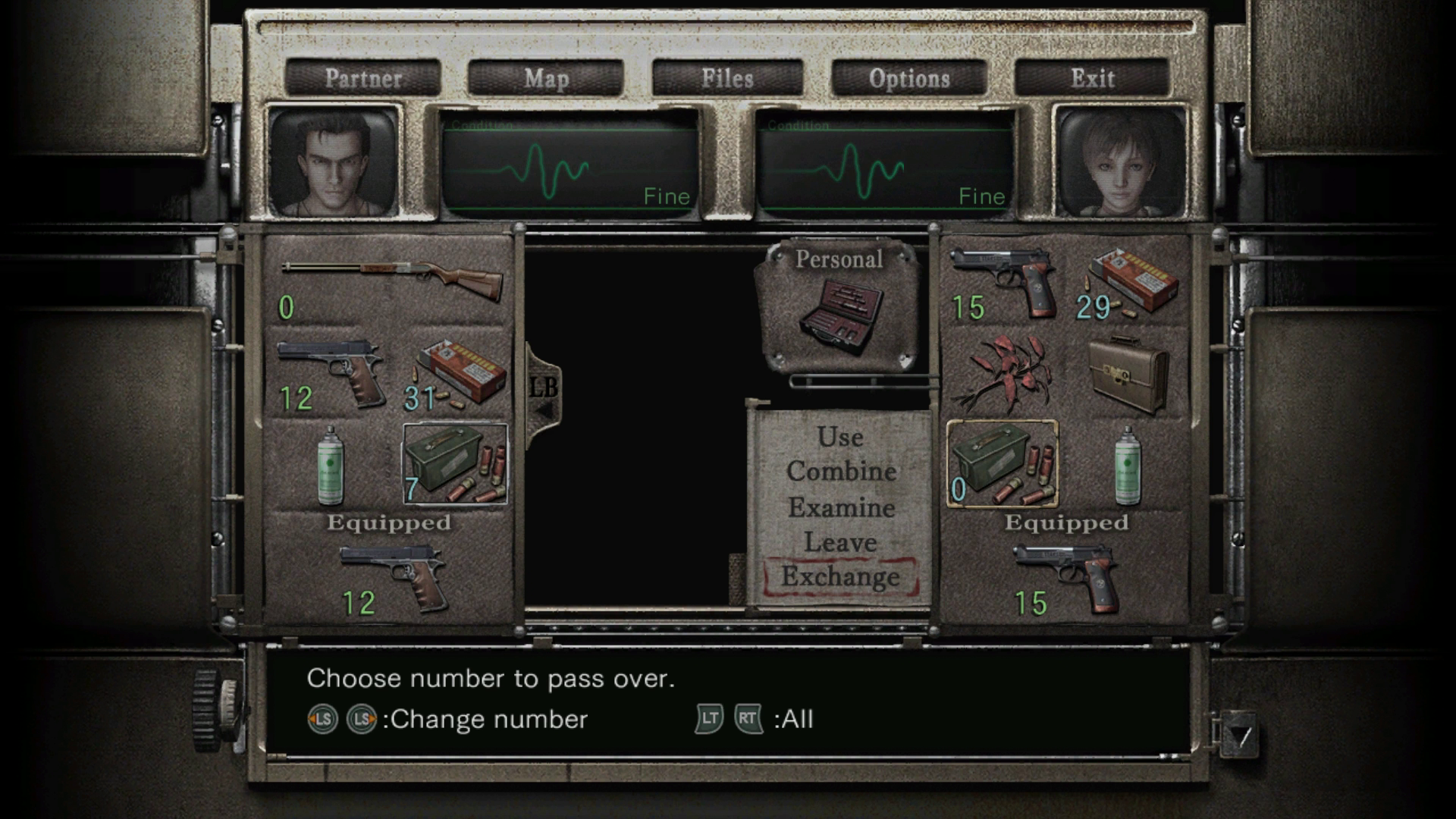
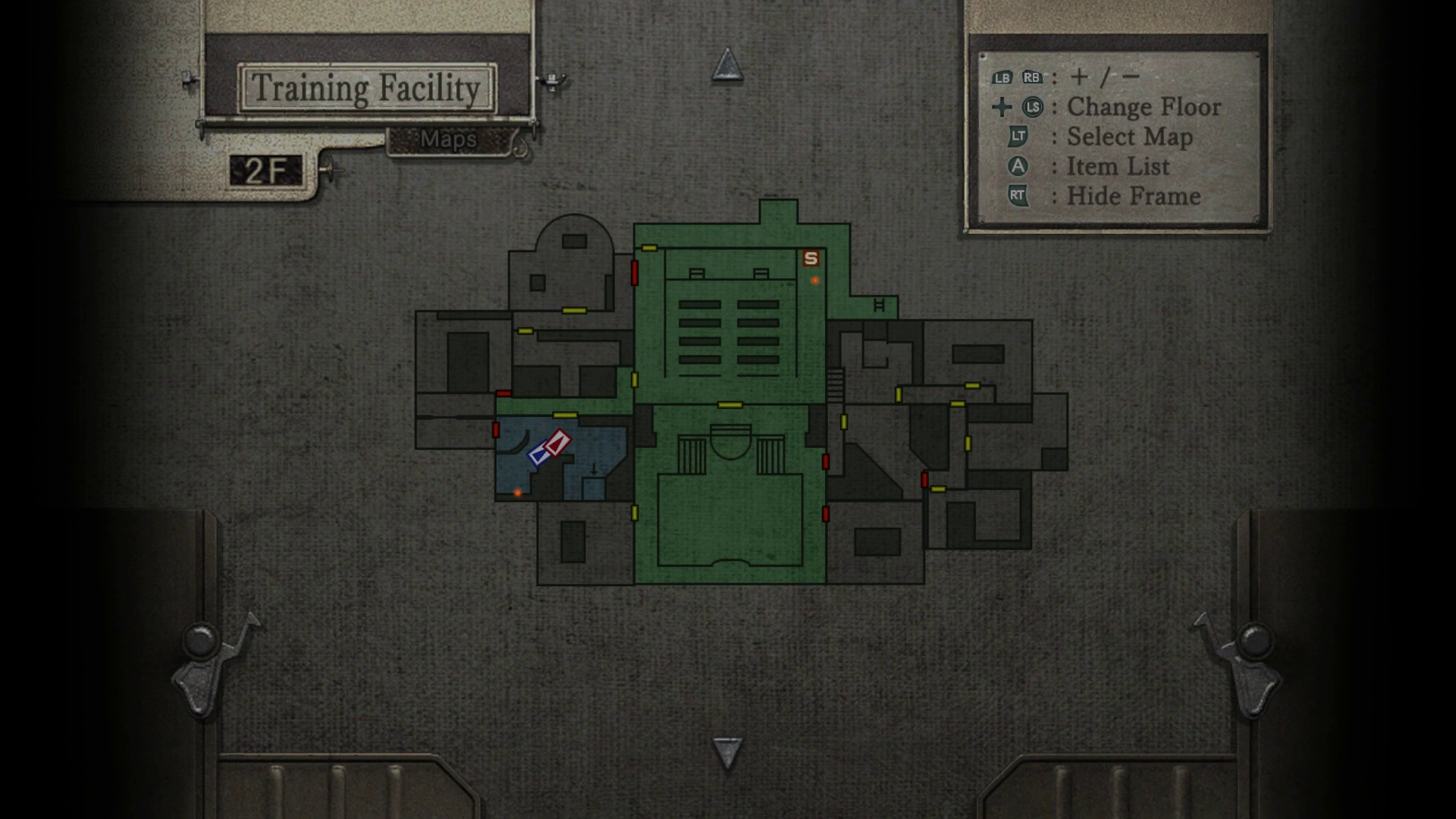
It wouldn't be so bad if you could leave one character with an empty inventory, reducing them to a key item mule, but Resident Evil Zero ensures you can't do that by forcing characters into situations where they either need to split up or fight alone. There's a lot of trial and error as a result of the game's messy inventory management system.
At one point, I fought a gigantic centipede boss who took Rebecca captive. At the time, Rebecca was carrying my best weapons and ammo. Billy wasn't carrying enough firepower to kill the boss, forcing me to backtrack 45 minutes to an earlier save file — there were no checkpoints back in 2002!
When the tiny inventory isn't limiting play, the dual-character approach does have some benefits. Some of the game's puzzles require you to think creatively, utilizing both characters in tandem. And for those times you're forced to go it alone, it can make combat far more risky and tense; two shooters are better than one, after all. As mentioned, you can split the characters up at will should you choose to, allowing you to cover more ground and potentially solve the game's maze puzzles more efficiently. It's even more fun in Zero's take on Game +1, which allows players to team up with the super-human Albert Wesker on the second play-through.
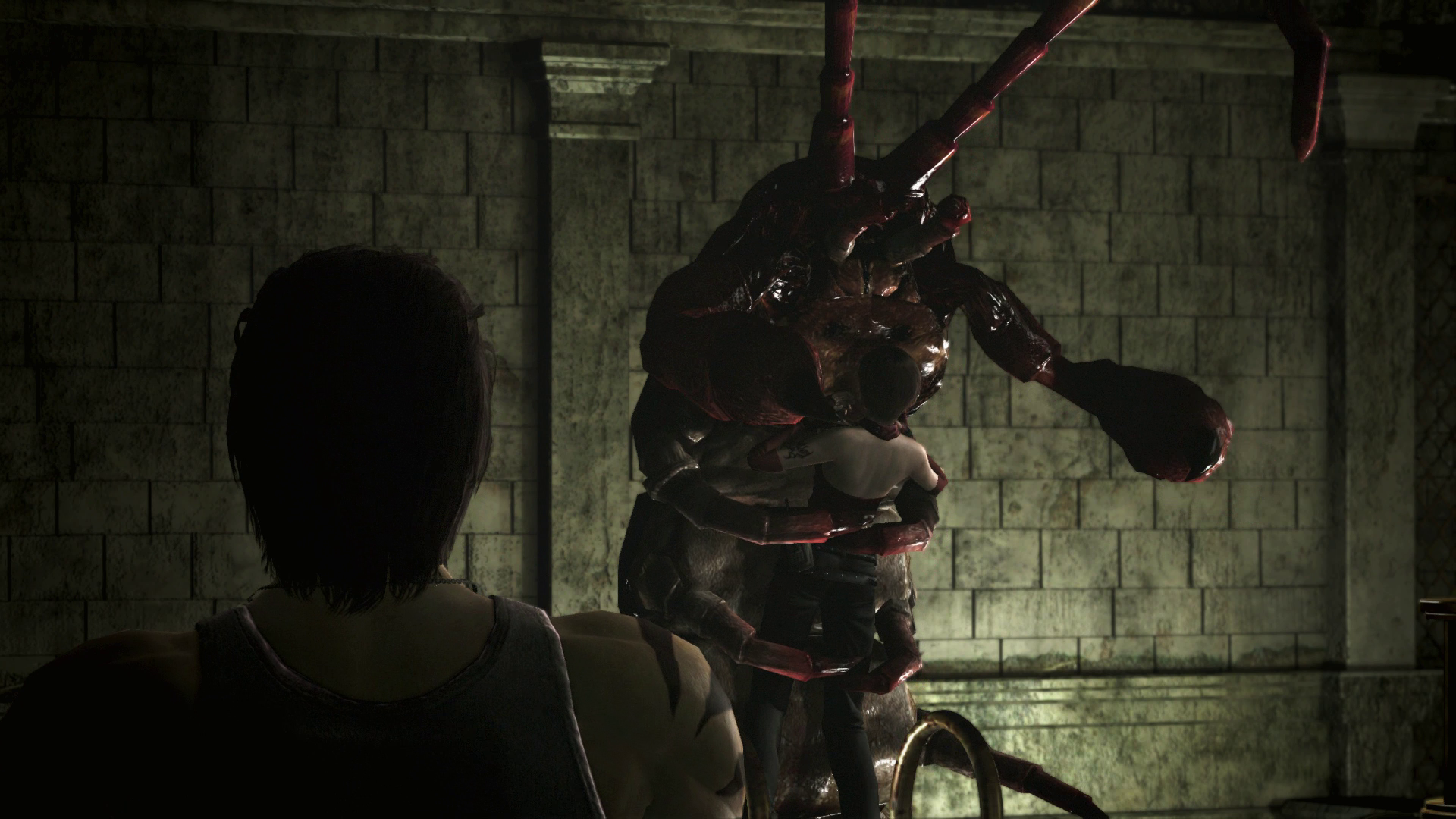
On your first play through on Normal difficulty, though, combat scenarios often feel tuned to have two characters present, making it hard to judge whether or not splitting up is a good idea. Weighing up the risks of splitting up is quite an interesting concept, but the bigger, scarier risk is considering whether or not you'll end up having to leave items behind for tedious backtracking later on.
The mechanics that work well in Resident Evil Zero are the ones that worked well in its predecessor.
Resident Evil Zero is supposed to be a survival horror game, and it certainly has all the appropriate Resident Evil elements. Blood-stained, abandoned Umbrella Inc facilities, creepy text-files, shambling undead, but having an A.I. partner at your beck and call strips away that isolated feeling the fixed-camera usually imposes. Your A.I. partner will immediately fire at anything that moves, whether it's on-screen or not, eliminating the fear of not knowing what's around the corner. When combined with frequent trips to the inventory menu, the tension is diminished, Zero simply isn't very scary.
The mechanics that work well in Resident Evil Zero are the ones that worked well in its predecessor. The item-hunting crawl is as satisfying as it always was, despite the inventory issues. Whether it's finding that particular key you need, solving that strange puzzle, discovering that desperate first aid spray as you're inches from death, there's plenty to love about Resident Evil Zero, particularly if you're a fan of those classic games.
Normal mode poses a significant challenge in its own right. Ammo and health items are scarce, enemies are far more dangerous, and the game's bosses are as climatic as ever, albeit low in polygon count.
Even though the story is adequate (if cheesy) and the classic core gameplay is there, the worst things about Resident Evil Zero were the new things it tried to do, sadly. Like the train in the game's first hour, the new mechanics only serve to derail what was an otherwise perfect formula.
Zeroing In
Resident Evil Zero: A cautionary retrospective
Resident Evil Zero, for me, seems to mark the moment that Capcom began to lose their grip on what made Resident Evil so great. Zero's follow-up, Resident Evil 4, won nearly universal acclaim with many outlets calling it Game of the Year, but even as a kid I always felt somewhat disappointed with it. The complex labyrinths were straightened out and simplified, enemies arrived in waves, inexplicably dropping the correct types of ammo or healing items you specifically needed — where's the fear in that? Resident Evil's transformation into an action series had begun.
The fact Resident Evil 4 was originally designed to be a full-blown action game (later spun off as Devil May Cry) reveals how much Capcom had started to struggle with the franchise's identity.
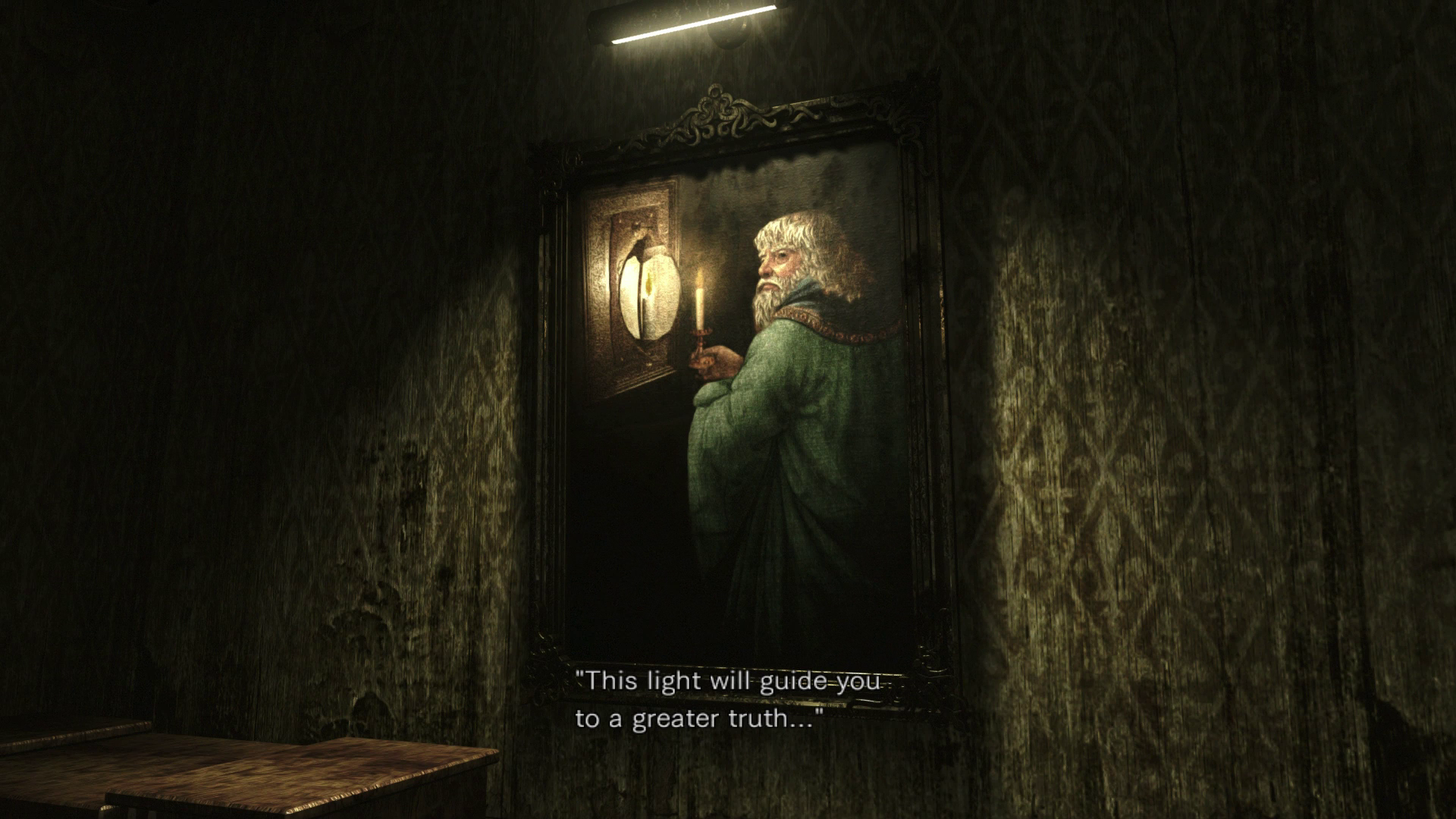
Zero has hit retail bundled with the remake of the original, titled "Resident Evil Origins", and it's as much a history lesson for Capcom as it is for people jumping into the series for the first time. Horror is a difficult genre to pull off for many reasons, particularly for large publishers who are perpetually under pressure to deliver massive sales. It's not enough to stick a bunch of zombies in a scary environment with spooky music, the gameplay has to strain the senses as much as the atmosphere, and the awkward features served up by Resident Evil Zero hinder more than horrify.
Pros:
- Resident Evil's classic core gameplay is as rewarding as ever
- Appropriately priced
- Detailed, evocative environments
Cons:
- Partner gameplay wasn't good back then, it isn't good now
- Cut-scenes appear pixelated due to upscaling
- Story delivery hasn't aged well
It feels as though Capcom is perpetually re-evaluating how to produce Resident Evil games. The core of what makes Resident Evil an excellent series resides in Zero in far greater abundance than it does in Resident Evil 6, and I hope that Capcom are beginning to understand why. Resident Evil HD set sales records for Capcom, inspiring the company to greenlight a full-blown Resident Evil 2 remake.
If you're willing to adjust to the game's age (which Capcom fails to hide) Resident Evil Zero is a decent horror purchase for the patient and methodical gamer. If you're a long-time fan of the series, you'll enjoy what Zero represents. Besides cashing in, I like to think that Capcom is gauging interest in the classic formula and in that respect, Resident Evil Zero is a history lesson worth bringing back from the grave.

Jez Corden is the Executive Editor at Windows Central, focusing primarily on all things Xbox and gaming. Jez is known for breaking exclusive news and analysis as relates to the Microsoft ecosystem while being powered by tea. Follow on Twitter (X) and tune in to the XB2 Podcast, all about, you guessed it, Xbox!
